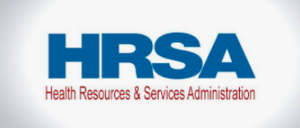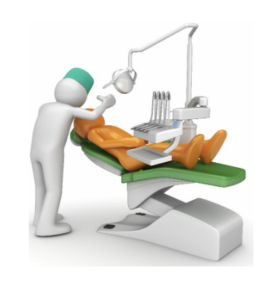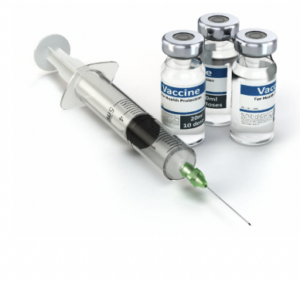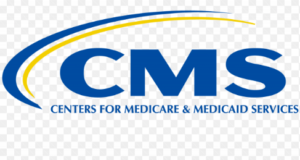- CMS: Medicare Program; Implementation of Prior Authorization for Select Services for the Wasteful and Inappropriate Services Reduction (WISeR) Model
- Public Inspection: CMS: Medicare Program: Implementation of Prior Authorization for Select Services for the Wasteful and Inappropriate Services Reduction Model
- CMS: Secretarial Comments on the CBE's (Battelle Memorial Institute) 2024 Activities: Report to Congress and the Secretary of the Department of Health and Human Services
- HHS: Patient Protection and Affordable Care Act: Marketplace Integrity and Affordability
- HRSA Announces Action to Lower Out-of-Pocket Costs for Life-Saving Medications at Health Centers Nationwide
- Public Inspection: HHS: Patient Protection and Affordable Care Act: Marketplace Integrity and Affordability
- Increased Risk of Cyber Threats Against Healthcare and Public Health Sector
- Eight Hospitals Selected for First Cohort of Rural Hospital Stabilization Program
- Announcing the 2030 Census Disclosure Avoidance Research Program
- CMS: Medicare Program; Hospital Inpatient Prospective Payment Systems for Acute Care Hospitals and the Long-Term Care Hospital Prospective Payment System and Policy Changes and Fiscal Year 2026 Rates; Requirements for Quality Programs; and Other Policy Changes; Correction
- CMS: Medicare Program; Hospital Inpatient Prospective Payment Systems for Acute Care Hospitals and the Long-Term Care Hospital Prospective Payment System and Policy Changes and Fiscal Year 2026 Rates; Requirements for Quality Programs; and Other Policy Changes; Correction
- CMS: Medicare and Medicaid Programs; Contract Year 2026 Policy and Technical Changes to the Medicare Advantage Program, Medicare Prescription Drug Benefit Program, Medicare Cost Plan Program, and Programs of All-Inclusive Care for the Elderly; Correction
- CMS: Medicare and Medicaid Programs; Contract Year 2026 Policy and Technical Changes to the Medicare Advantage Program, Medicare Prescription Drug Benefit Program, Medicare Cost Plan Program, and Programs of All-Inclusive Care for the Elderly; Correction
- CMS: Medicare Program; Prospective Payment System and Consolidated Billing for Skilled Nursing Facilities; Updates to the Quality Reporting Program for Federal Fiscal Year 2026
- CMS: Medicare Program; FY 2026 Hospice Wage Index and Payment Rate Update and Hospice Quality Reporting Program Requirements
Pennsylvania Hospital Benefits from Expansion of Rural Residencies
![]() Corry Memorial Hospital Association in northwest Pennsylvania was one of 15 recipients to share $11 million in Health Resources and Services Administration (HRSA) funding to establish new residency programs in rural communities. HHS Secretary Xavier Becerras said, “Training more doctors in our country’s rural areas is a proven strategy to recruit and retain doctors to serve rural communities. By funding new residency programs focused on OB-GYN training, we can help eliminate maternal care deserts, an important step in making pregnancy and childbirth safer.” Corry Memorial Hospital, which is associated with Lake Erie College of Osteopathic Medicine (LECOM), will establish a new psychiatry residency program.
Corry Memorial Hospital Association in northwest Pennsylvania was one of 15 recipients to share $11 million in Health Resources and Services Administration (HRSA) funding to establish new residency programs in rural communities. HHS Secretary Xavier Becerras said, “Training more doctors in our country’s rural areas is a proven strategy to recruit and retain doctors to serve rural communities. By funding new residency programs focused on OB-GYN training, we can help eliminate maternal care deserts, an important step in making pregnancy and childbirth safer.” Corry Memorial Hospital, which is associated with Lake Erie College of Osteopathic Medicine (LECOM), will establish a new psychiatry residency program.
New Nurse Workforce Funding Opportunity Announced
 The Health Resources and Services Administration (HRSA) has just announced a new funding opportunity to increase the nurse workforce in rural and underserved areas. Federally Qualified Health Centers are eligible to apply for The Nurse Education, Practice, Quality and Retention (NEPQR) – Workforce Expansion Program (WEP) now through July 26, 2024. HRSA will award approximately $4.7 million to up to five grantees over a period of four years for additional training of associate and baccalaureate degree nursing students. A technical assistance webinar regarding this funding opportunity will be held June 25 at 1:00 pm.
The Health Resources and Services Administration (HRSA) has just announced a new funding opportunity to increase the nurse workforce in rural and underserved areas. Federally Qualified Health Centers are eligible to apply for The Nurse Education, Practice, Quality and Retention (NEPQR) – Workforce Expansion Program (WEP) now through July 26, 2024. HRSA will award approximately $4.7 million to up to five grantees over a period of four years for additional training of associate and baccalaureate degree nursing students. A technical assistance webinar regarding this funding opportunity will be held June 25 at 1:00 pm.
Health Center One Step Closer to Funding for New Dental Clinic
 Laurel Health Centers in Mansfield was notified that Sen. John Fetterman has advanced a one-million-dollar Congressional directed spending request to the Appropriations Committee for review on their behalf. If approved, this funding will allow Laurel Health to construct a new full-service dental clinic to provide essential dental services to patients of all ages in northcentral Pennsylvania. Families in rural areas often limit or go without access to regular dental care due to a lack of dental insurance and the high costs associated with routine cleanings and treatment. For the past several years, Laurel Health has been working diligently to bring comprehensive, affordable dental services to more underserved communities and is excited to take the next step in that journey.
Laurel Health Centers in Mansfield was notified that Sen. John Fetterman has advanced a one-million-dollar Congressional directed spending request to the Appropriations Committee for review on their behalf. If approved, this funding will allow Laurel Health to construct a new full-service dental clinic to provide essential dental services to patients of all ages in northcentral Pennsylvania. Families in rural areas often limit or go without access to regular dental care due to a lack of dental insurance and the high costs associated with routine cleanings and treatment. For the past several years, Laurel Health has been working diligently to bring comprehensive, affordable dental services to more underserved communities and is excited to take the next step in that journey.
$20 Million Commitment Made to Proposed New Pennsylvania College of Osteopathic Medicine
A college of osteopathic medicine proposed by Indiana University of Pennsylvania has secured a $20 million commitment from its foundation, the largest gift toward the initiative to date. The medical school would be the first osteopathic school of medicine on a public university campus in Pennsylvania. The commitment brings to $23.7 million the amount raised so far for the college, almost a fourth of what is believed to be needed initially, according to the university. In addition, Sen. John Fetterman, D-Braddock, and U.S. Rep. Guy Reschenthaler, R-Jefferson, have announced they are seeking $2 million in community project funds in the federal budget for fiscal year 2025. Public and private funds already directed to the project include $2 million in state government funds announced in January by Senate Majority Leader Joe Pittman, R-Indiana; $1 million from alumnus Rich Caruso in May 2023; $500,000 from IUP’s alumni association in December; and another $150,000 in the 2024 federal budget. Read more.
Black Pennsylvanians 50% Less Likely to Receive Naloxone, Despite Soaring Overdose Deaths
![]() A recent study from the Pennsylvania Department of Health (DOH) has found that Black people who died from opioid overdoses were half as likely as white people to receive the life-saving drug naloxone, otherwise known as Narcan. The study also found that Black overdose deaths in Pennsylvania increased by more than 50% between 2019 and 2021, compared with no change in white overdose deaths. A DOH representative said that similar rises in overdose deaths are being seen across the country, especially among Black, American Indian and Alaska Native populations, but researchers are still investigating what’s behind the spike. Read more.
A recent study from the Pennsylvania Department of Health (DOH) has found that Black people who died from opioid overdoses were half as likely as white people to receive the life-saving drug naloxone, otherwise known as Narcan. The study also found that Black overdose deaths in Pennsylvania increased by more than 50% between 2019 and 2021, compared with no change in white overdose deaths. A DOH representative said that similar rises in overdose deaths are being seen across the country, especially among Black, American Indian and Alaska Native populations, but researchers are still investigating what’s behind the spike. Read more.
Supreme Court Preserves Abortion Pill Access After Tossing Challenge
Why it matters: It’s the court’s biggest abortion-related decision since overturning Roe v. Wade and ensures that mifepristone — one of the most widely used drugs for medication abortions — will remain available. Click here to learn more.
Drug Manufacturers’ Assault on 340B Program Continues
 Two more manufacturers have announced contract pharmacy restrictions (CPRs) on Community Health Centers and a third has tightened them:
Two more manufacturers have announced contract pharmacy restrictions (CPRs) on Community Health Centers and a third has tightened them:
· Alkermes – who makes Vivitrol, an SUD treatment drug that CHCs often prescribe – announced CPRs that will go into effect on July 22. Due to varying payor rules about whether Vivitrol must be dispensed by a regular pharmacy or contract pharmacy, it will soon be impossible for most CHCs to obtain all their Vivitrol at the 340B price.
· Sobi announced CPRs effective July 1, but they should have little impact on CHCs.
· Effective July 1, Bristol Meyers Squibb will require CHCs with a single, designated contract pharmacy site to report data to ESP on that site. This data must be reported within 14 days of the drug being dispensed and include 16 elements for each claim. CHC experts say that meeting these requirements will be an extremely heavy lift, and possibly impossible.
· Sanofi’s policy of treating free-standing CHC-owned pharmacies like contract pharmacies appears to have been adopted by Alkermes, Bausch & Lomb, and Sobi. More information will be forthcoming, but we’re told that health centers should prepare for most of their free-standing pharmacies to lose access to 340B-priced Sanofi, Bausch & Lomb, and Sobi drugs starting July 1, and Alkermes drugs starting July 22.
Maternal and Child Health Stillbirth Prevention Act Passes out of Congress
 The Maternal and Child Health Stillbirth Prevention Act of 2024, HR 4581, passed through both the House and the Senate, and now awaits President Biden’s signature before it becomes law. The bipartisan bill amends the Maternal and Child Health Service Block Grant program to allow states to use those dollars for stillbirth prevention and research activities but does not include additional funding.
The Maternal and Child Health Stillbirth Prevention Act of 2024, HR 4581, passed through both the House and the Senate, and now awaits President Biden’s signature before it becomes law. The bipartisan bill amends the Maternal and Child Health Service Block Grant program to allow states to use those dollars for stillbirth prevention and research activities but does not include additional funding.
Responding to the Primary Care Payment Congressional RFI
 Senators Whitehouse and Cassidy introduced S. 4338, the Pay PCPs Act. The Pay PCPs Act would encourage the Centers for Medicare and Medicaid Services (CMS) to accelerate its existing efforts to support value-based primary care and improve the adequacy of pay for primary care providers in Medicare. This legislation serves as a marker for future primary care legislation and includes a request for information on hybrid payments for primary care providers, risk adjustment criteria, quality measures and services to be included in hybrid models, cost sharing and technical advisory committees. Please send any feedback on the RFI questions to federalpolicy@nachc.org by June 28.
Senators Whitehouse and Cassidy introduced S. 4338, the Pay PCPs Act. The Pay PCPs Act would encourage the Centers for Medicare and Medicaid Services (CMS) to accelerate its existing efforts to support value-based primary care and improve the adequacy of pay for primary care providers in Medicare. This legislation serves as a marker for future primary care legislation and includes a request for information on hybrid payments for primary care providers, risk adjustment criteria, quality measures and services to be included in hybrid models, cost sharing and technical advisory committees. Please send any feedback on the RFI questions to federalpolicy@nachc.org by June 28.
Work Resumes in Pennsylvania to Finalize Rules to Reduce Barriers for Those with Criminal Records to Earn Professional Licenses
State officials are taking another crack at finalizing proposed rules that would make it easier for Pennsylvania residents with criminal records to earn professional licenses in fields ranging from accounting and nursing to cosmetology and real estate. The PA Department of State (DOS), which oversees professional licensure, issued a revised version of the rules this month after an earlier draft was rejected in April by the Independent Regulatory Review Commission (IRRC). IRRC questioned whether the rules adequately protect public health and safety and was concerned, in part, that certain crimes were not listed as being “directly related” to certain professions, thus triggering a closer look from licensing boards. The rules, for example, did not make prior convictions for forgery or identity theft an automatic impediment for people seeking to become state-licensed CPAs. In its latest version, DOS added stronger language emphasizing that licensing boards have a responsibility to consider individual applications for licensure. The language also clarifies that boards can still consider offenses as part of a licensing decision even if they are not listed as “directly related.” The IRRC met this week and approved the updated version. The rules implement Act 53 of 2020, a state law enacted in 2020.
